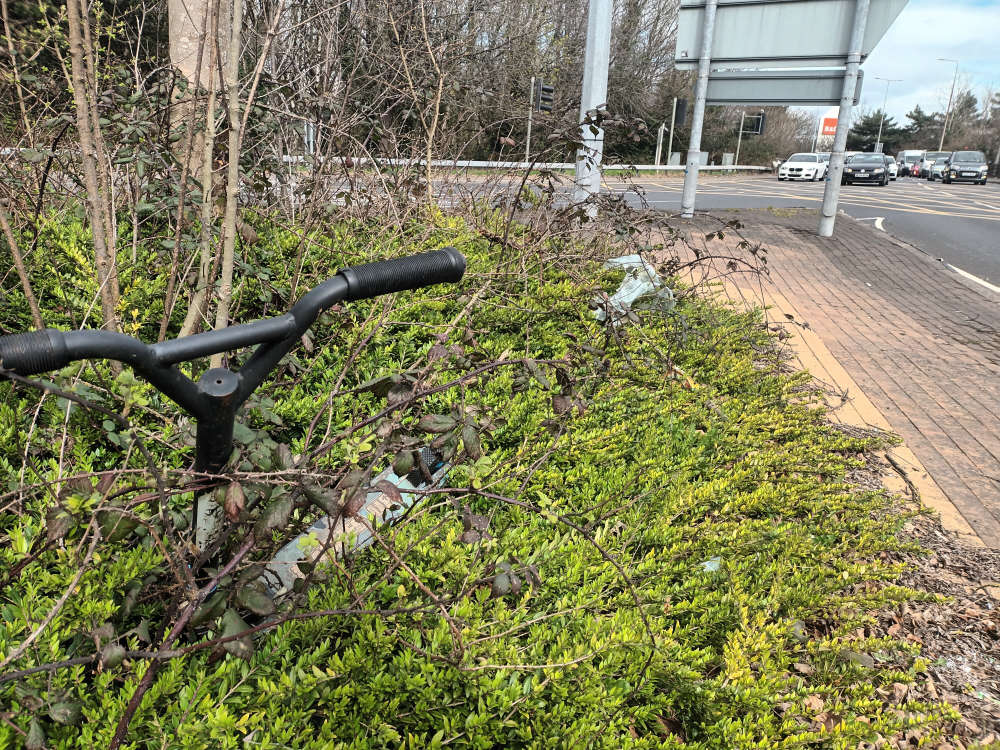
Cardiff and the Vale of Glamorgan has a litter issue along its major roads.
Coming into the city at major junctions, such as the Gabalfa and Eastern Avenue (A48) roundabouts, drivers are often greeted with the sight of crisp packets, cans, and fast food packaging.
At Culverhouse Cross, the issue is well pronounced with litter and random bits of junk like scooters and rusting metal dumped in the hedges and verges around the junction.
One Change.org petition set up recently called the issue in Cardiff “unsightly” and added that it presented a “negative image to our visitors”.
A Cardiff Council cabinet member blamed the issue on a “few selfish people” while Keep Wales Tidy said it is currently seeing a worrying increase in all types of litter.
On its website, the charity called the problem of roadside litter complex and highly costly to sort out because of the significant health and safety issues associated with clearing it.
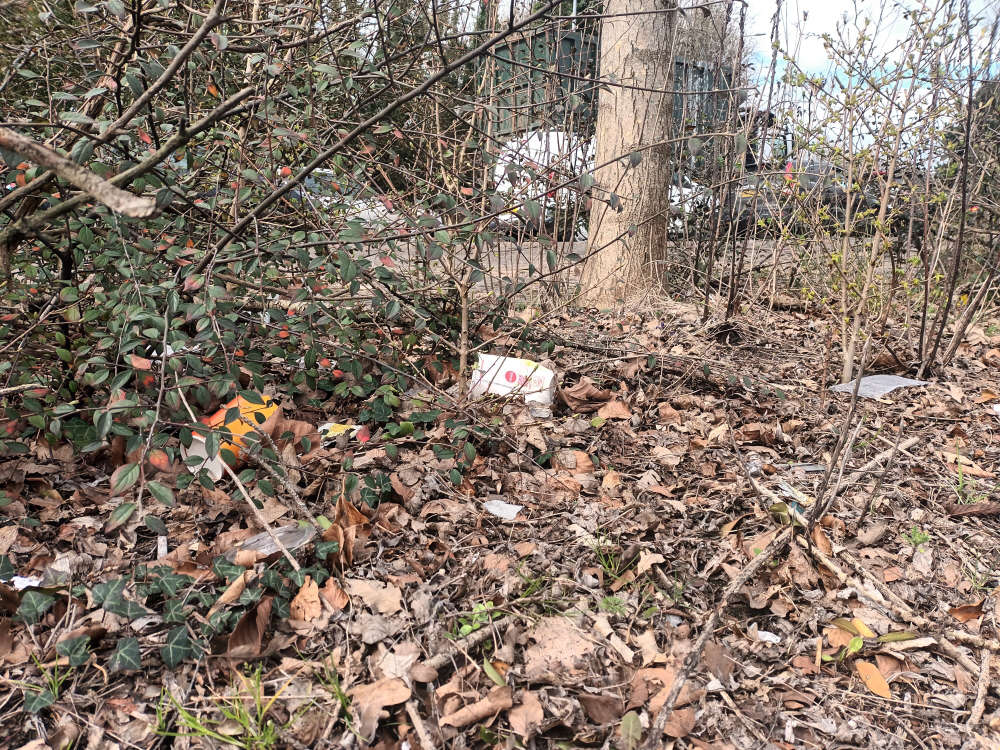
A Keep Wales Tidy spokesman said: “We are currently seeing a worrying increase in all types of litter – and at this time of year, with limited vegetation it is particularly noticeable on our roadsides and laybys."
“Fast food and ‘on the go’ food and drink packaging, which contributes to a large percentage of roadside and layby litter, is becoming a growing concern and research shows that people are comfortable to behave very differently when they are hidden by the anonymity of their car compared to the behaviour of more visible pedestrians."
“With these normal societal values and pressures being disregarded in this way tackling litter from vehicles is a major challenge."
“The problem is compounded by the challenge of protecting roadside litter-pickers meaning that in many cases roads need to be completely closed for safe cleansing to be carried out."
“This often means that litter thrown from cars onto busy roads can be there for years, being not only unsightly but also a danger to nature."
“Keep Wales Tidy would like to see the legislation changed in Wales to make littering offences from vehicles the responsibility of the owner of the vehicle – as it is with other driving offences – facilitating easier enforcement and ultimately serving as a deterrent."
“We would also like to see a mandate from government for drive-through fast-food retailers to put car registration information onto all food packaging, removing the safety of anonymity and making culprits more easily identifiable."
“Until these measures can be realised, we would encourage all drivers in Wales to keep a car bin in their vehicle – these come in many leak- and odour-proof designs and sizes – or simply take their litter home.”
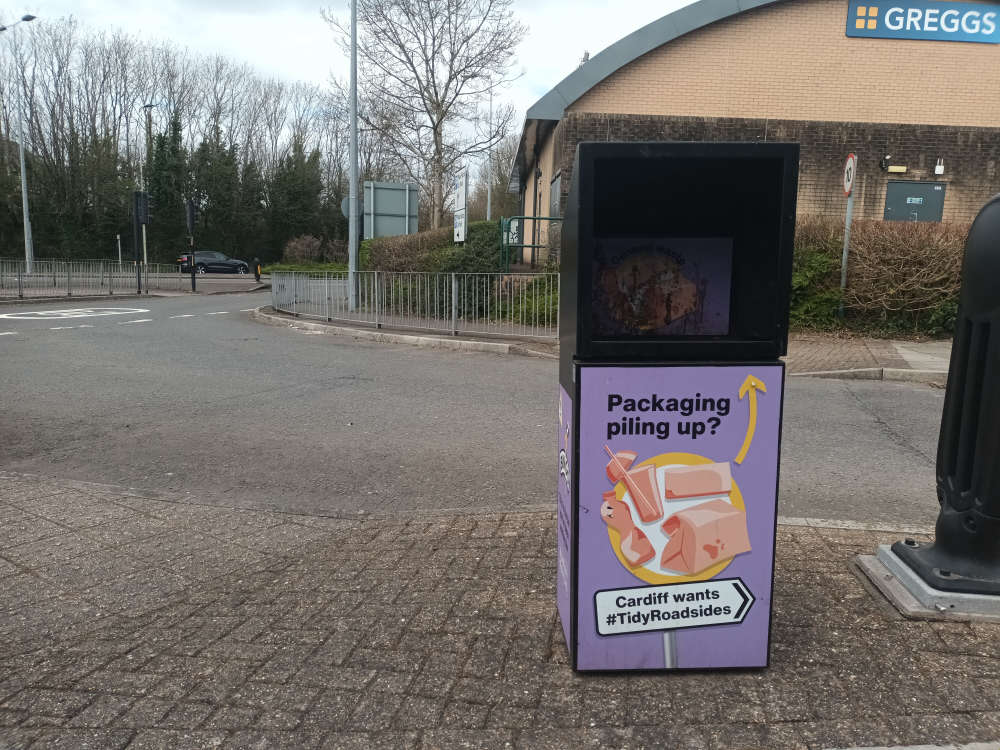
About a year ago, Keep Wales started working on a project called #TidyRoadsides in partnership with Hubbub, Ellipsis Earth and local councils.
The project, aimed at tackling roadside litter in Cardiff, Bridgend, and the Vale of Glamorgan, encourages drivers to take litter home with them and resulted in new car-friendly bins being installed at a certain locations.
However, the issue is still there for people to see.
The Change.org petition on roadside litter, set up by Cardiff resident Phil Coles, calls on councils across Wales to initiate a comprehensive litter clean-up programme.
Mr Coles said: “I am deeply saddened and embarrassed by the growing issue of litter along our roads. It is not only unsightly, distorting the natural beauty of our country, but also poses a significant public health concern."
“Our once pristine roadsides and highways, gateways to our vibrant cities, are now tarnished with litter, presenting a negative image to our visitors, and more importantly, encouraging the spread of pests and vermin.”
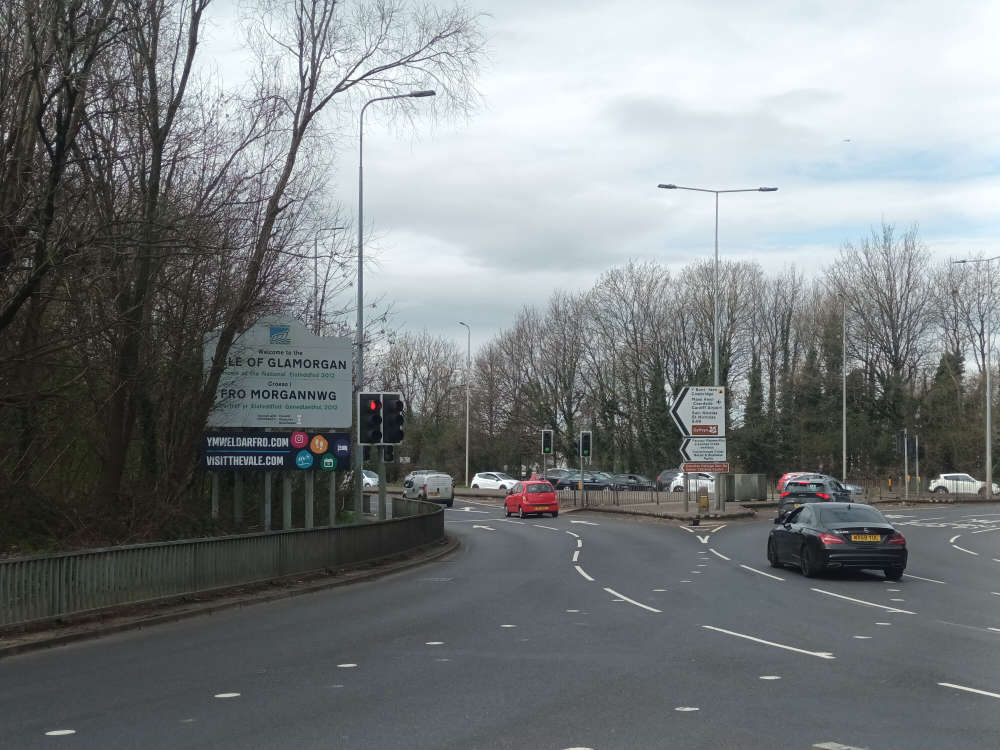
A Keep Wales Tidy report on littering in Wales during 2023-24, titled "How Clean Are Our Streets?", states that fast food litter has increased to its highest figure ever recorded and is now being found on 26.4% of streets across Wales.
Data in the report also shows that ten years ago, fast food litter was being found on about 19% of streets across the country.
Street cleansing operations cost Cardiff Council about £7 million every year, according to their cabinet member for waste, street scene and environmental services, Cllr Norma Mackie.
She said: “The council does conduct litter-picks along arterial routes every four months but this is a costly process requiring road closures and traffic management to ensure staff safety."
“We do attempt to arrange these litter-picks when other works are being carried out on carriageways to reduce cost to the public purse."
“For these reasons, it’s not a straightforward process and once a stretch has been cleared, unfortunately, it doesn’t take long before it is littered again. What we can’t get away from, is that littering, whether dropped on the ground or thrown from vehicles, is caused by a few selfish people."
“If litterers used the litterbins provided on street, or disposed of rubbish at home after their journey, then the money which is currently being spent on this problem could be used for other services."
“I’ve said it before and I’ll say it again – people need to take responsibility for their actions."
“Recently, Cardiff set a world record for a volunteer river clean-up, with 1,327 people participating along the River Taff. This incredible effort shows how much of a difference we can make when we come together and love where we live."
“I want to thank every one of them and all the fabulous community litter-picking teams across the city for their dedication to improving our environment. They play a key role in helping us tackle litterers."
“The best way to achieve a cleaner Cardiff is for everyone to take responsibility for their rubbish. Please dispose of your rubbish responsibly to help keep Cardiff clean and reduce unnecessary expenditure.”
A Vale of Glamorgan Council spokesman said a supervisor has been sent to assess the area of Culverhouse Cross over which it has responsibility.
The spokesman added that the “safe areas” within the Vale at this location are litter-picked weekly.




 Double shout for RNLI crews
Double shout for RNLI crews
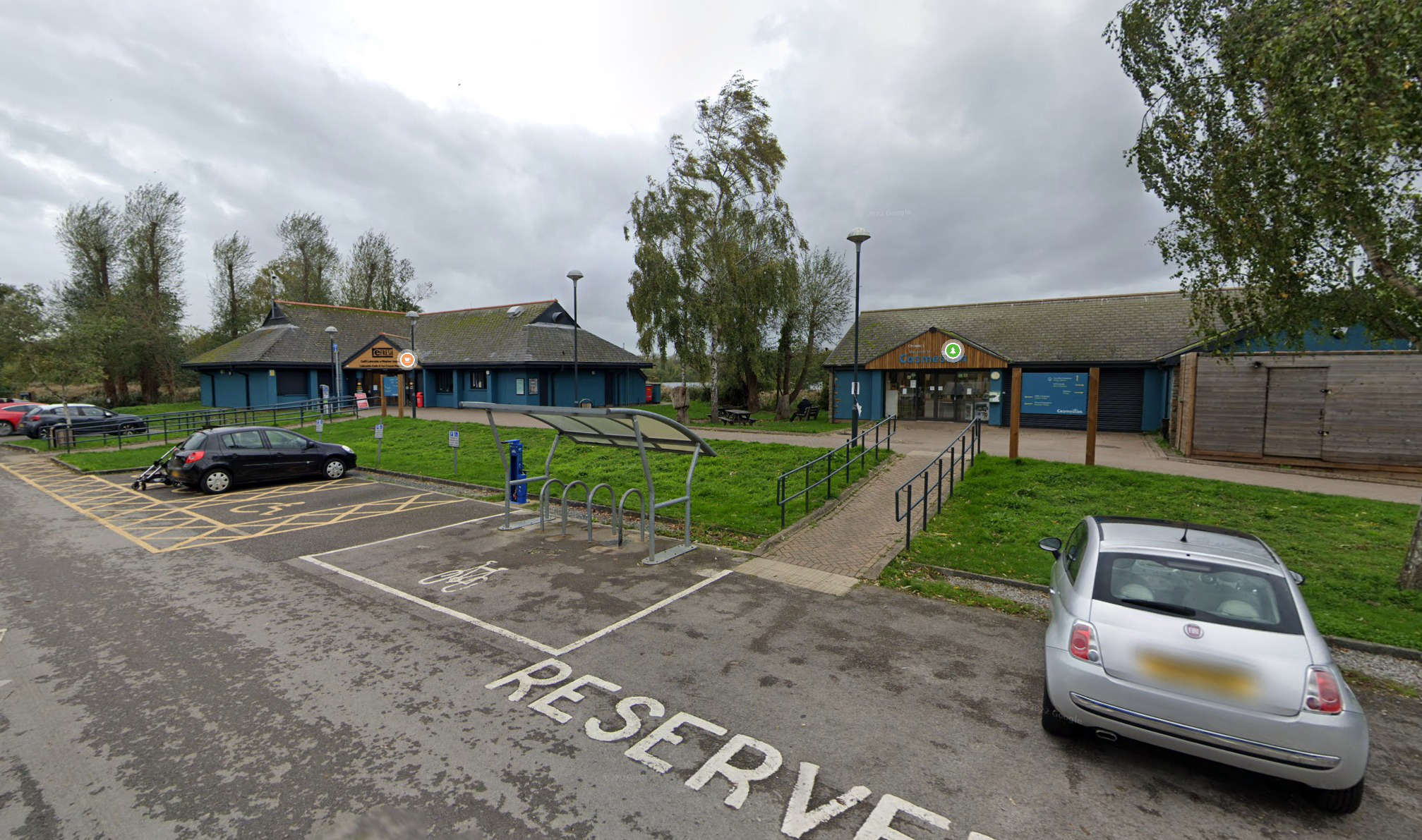 Council criticised after Green Flag withdrawal
Council criticised after Green Flag withdrawal
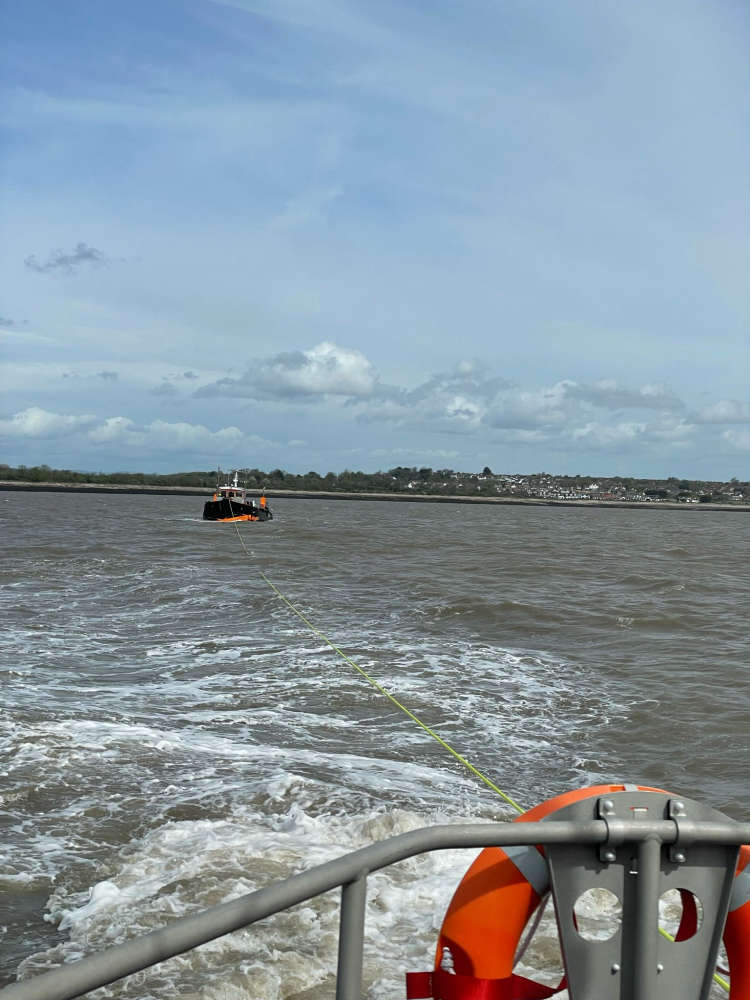 Drifting dredger rescued off Hayes Point
Drifting dredger rescued off Hayes Point
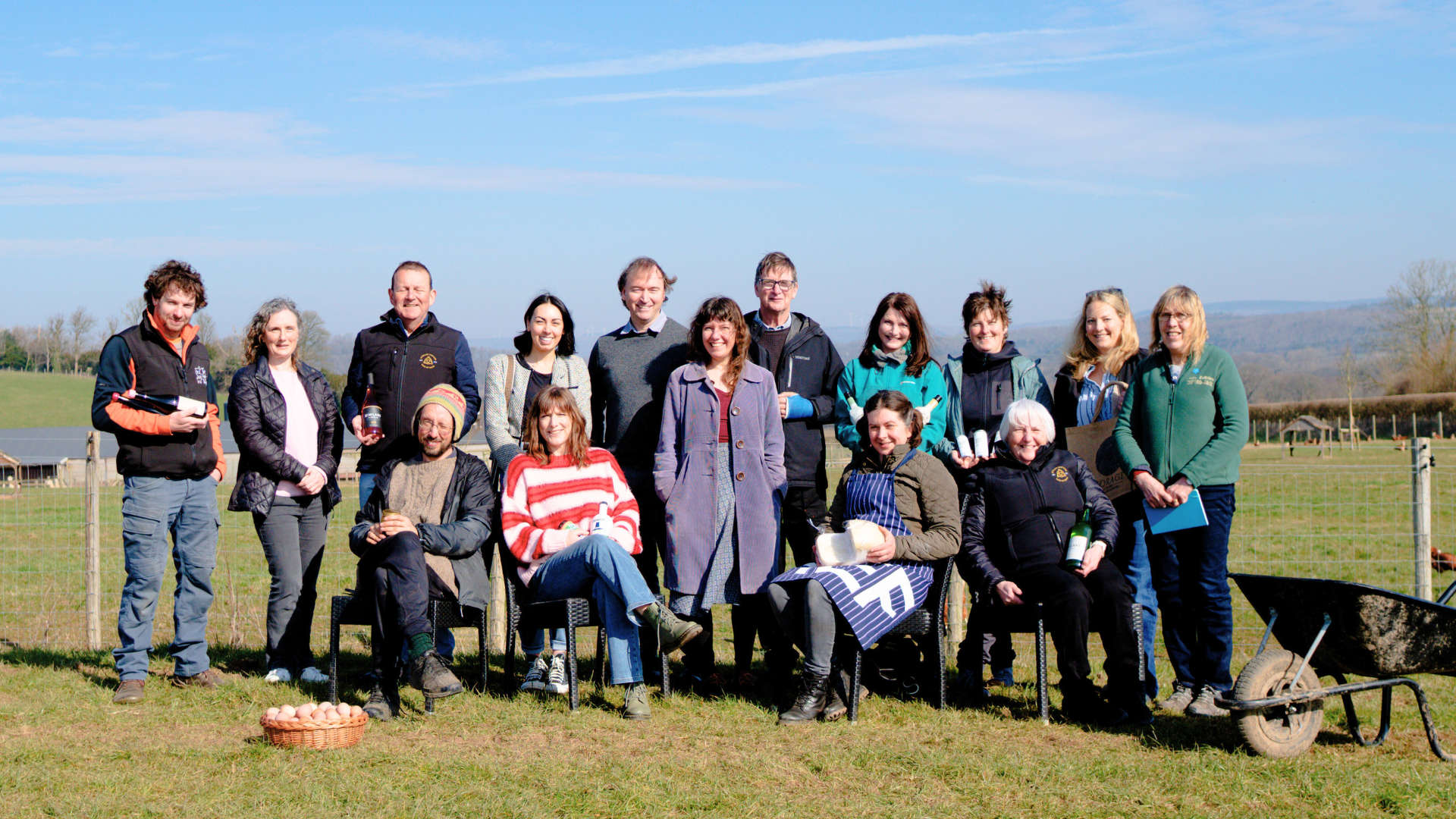 Line up unveiled for 2025 Vale Food Trail
Line up unveiled for 2025 Vale Food Trail
 Blackweir Live: licence approved for controversial gigs
Blackweir Live: licence approved for controversial gigs
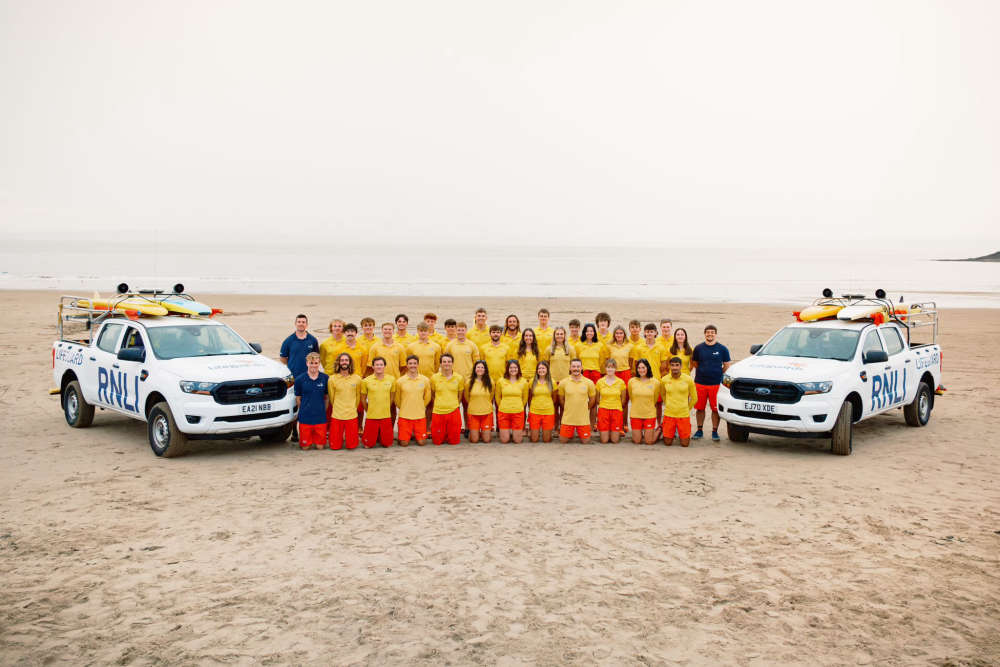 Lifeguards return to Whitmore Bay
Lifeguards return to Whitmore Bay
 More funding for Vale hospices
More funding for Vale hospices
 Upgrades for Llantwit and Barry leisure centres
Upgrades for Llantwit and Barry leisure centres
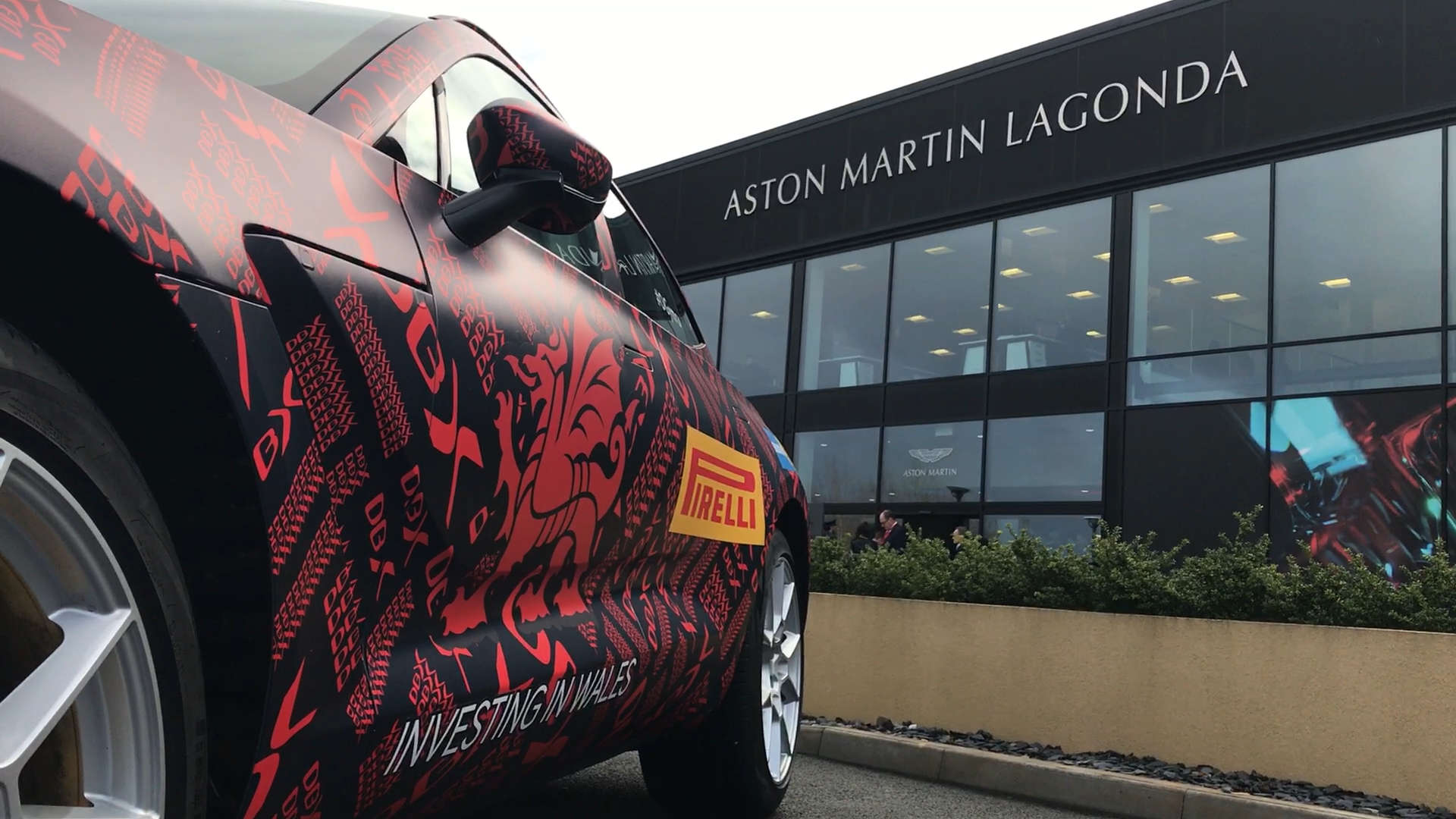 Vale firms nominated for Wales Business Awards
Vale firms nominated for Wales Business Awards
 Barry student prepares for Miss Wales final
Barry student prepares for Miss Wales final
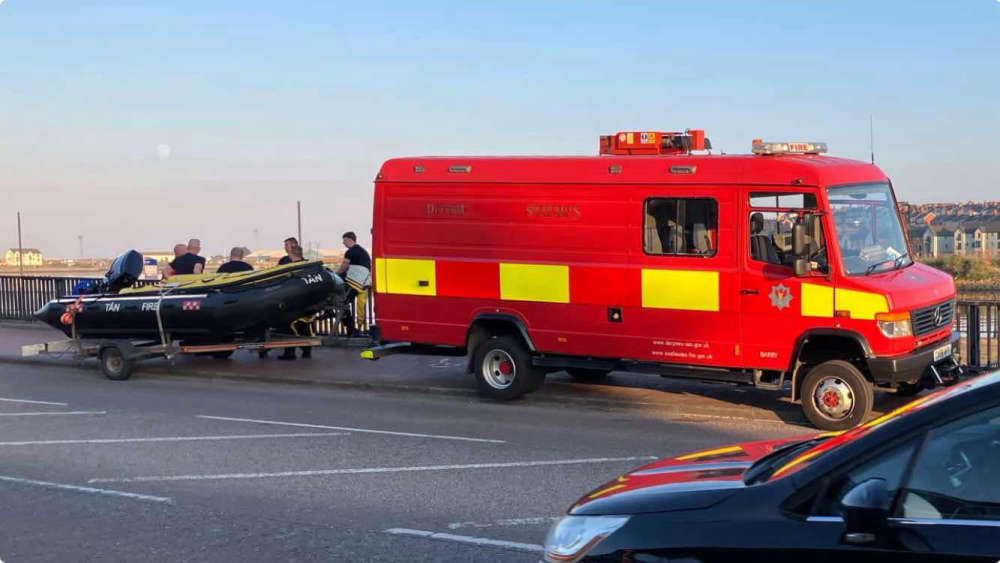 Man's body found at Barry Docks
Man's body found at Barry Docks
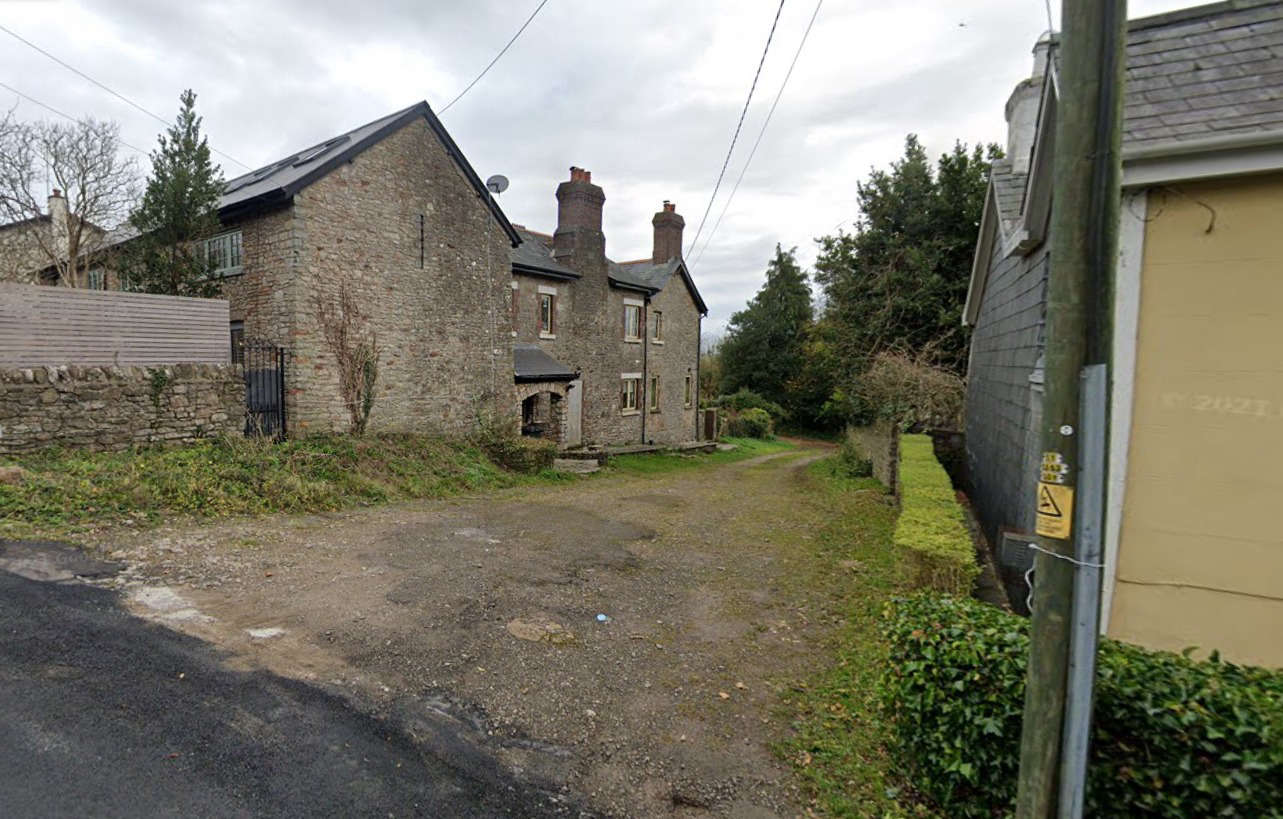 Landowner allowed to build near right of way
Landowner allowed to build near right of way
 Inquest opens into A48 deaths
Inquest opens into A48 deaths
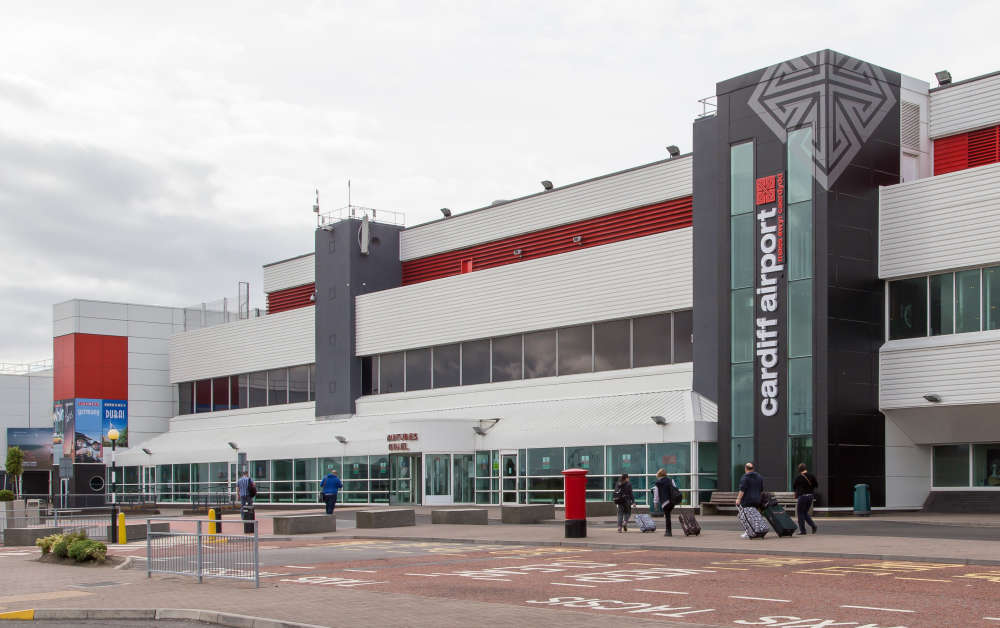 Easter passenger boost for Cardiff Airport
Easter passenger boost for Cardiff Airport
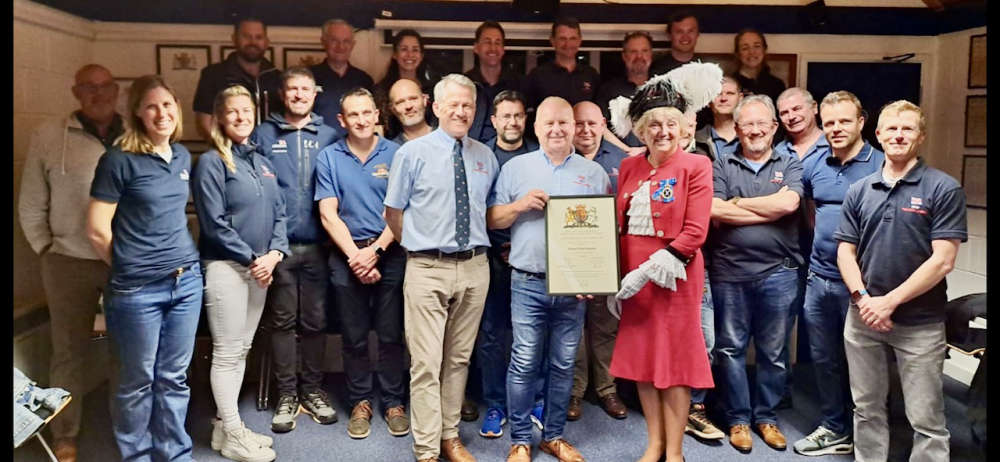 Penarth lifeboat veteran bows out
Penarth lifeboat veteran bows out
 Barry housing scheme completes second phase
Barry housing scheme completes second phase
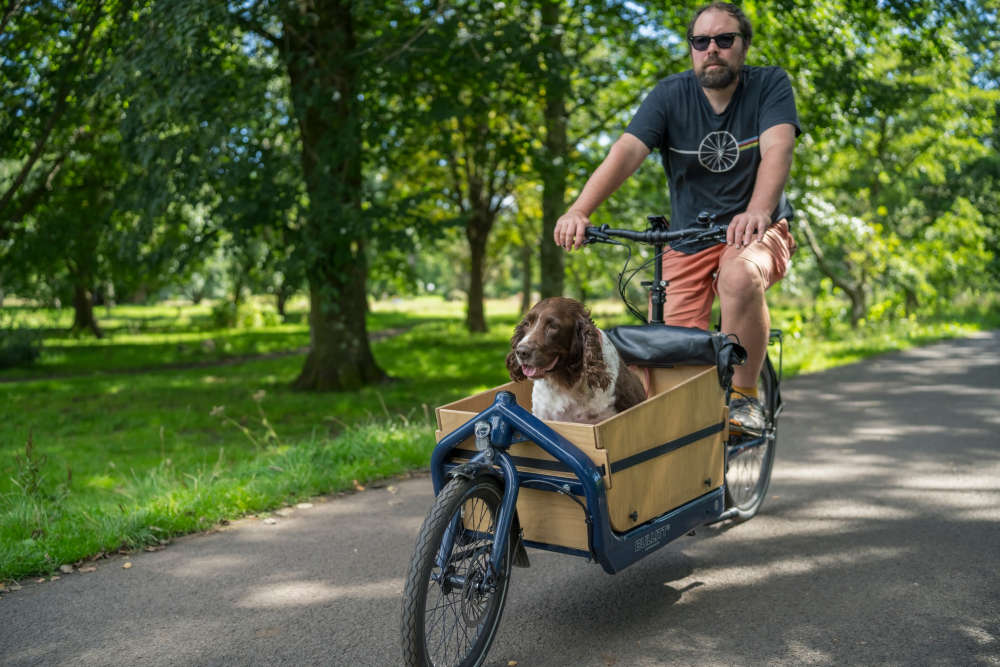 £3m boost for local transport links
£3m boost for local transport links
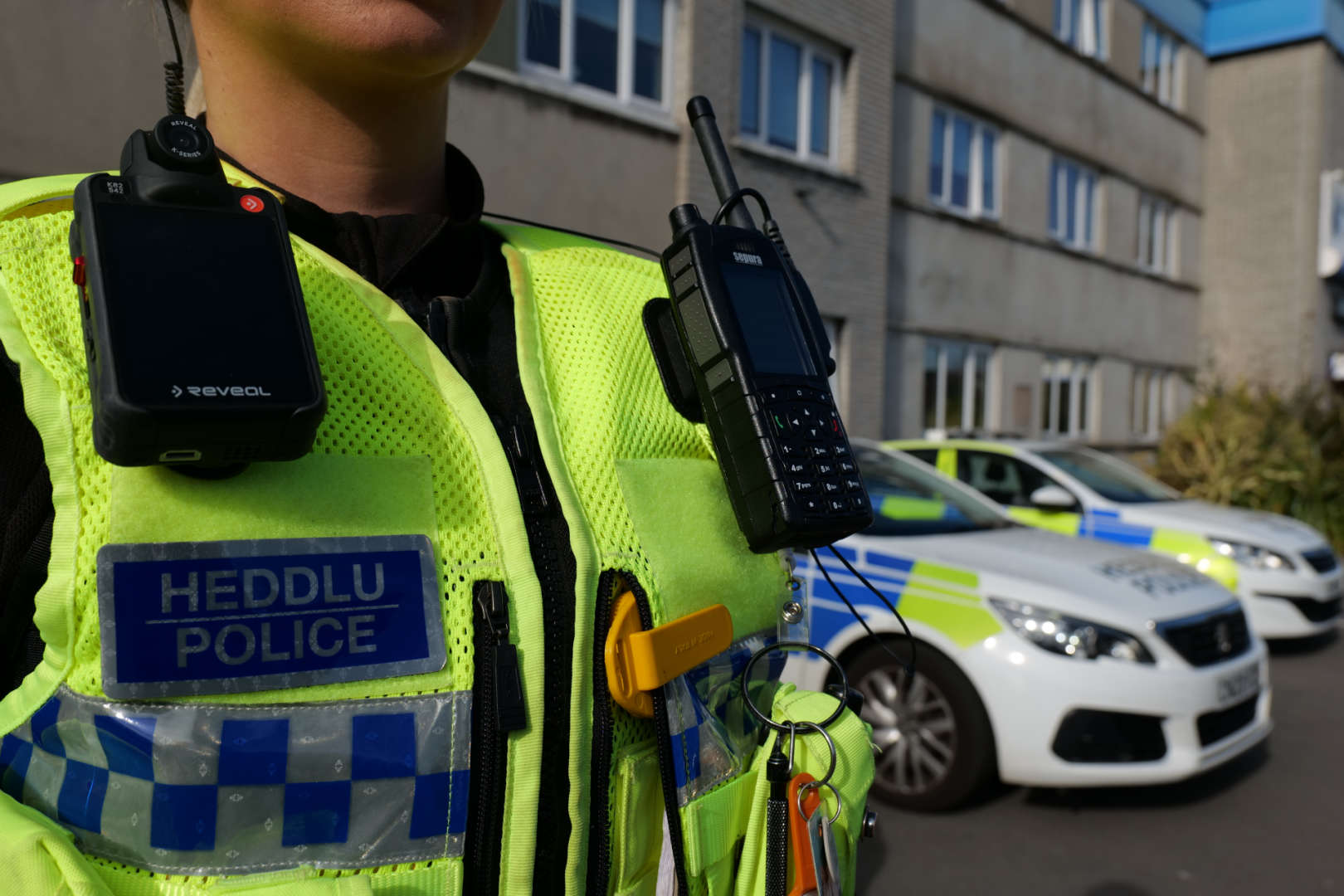 Missing Llandough man found after appeal
Missing Llandough man found after appeal






